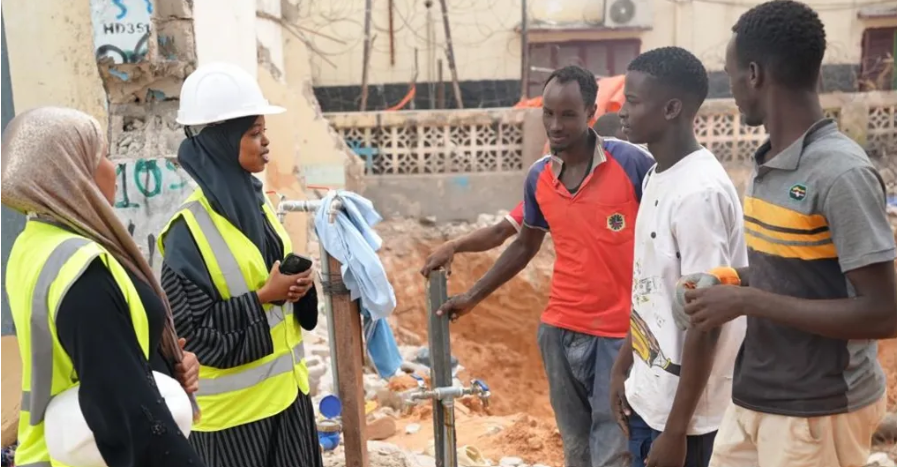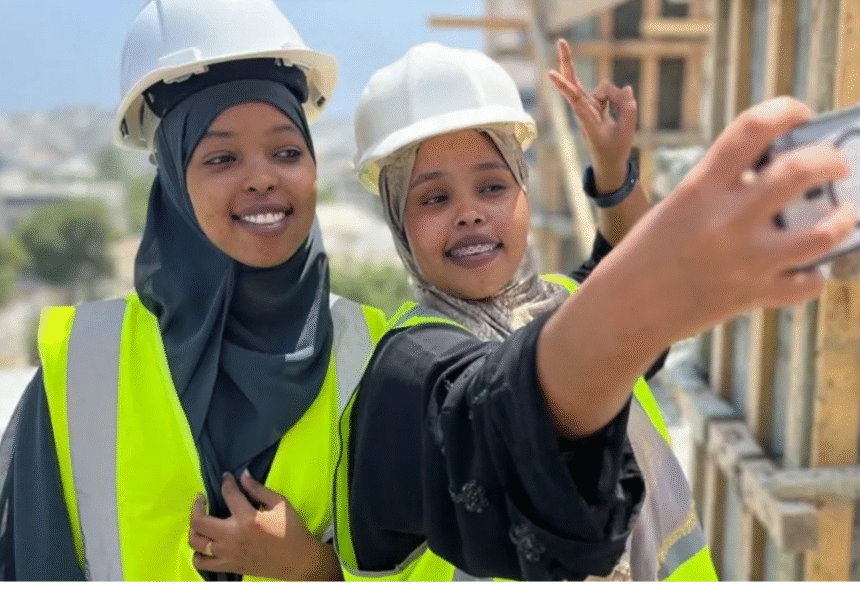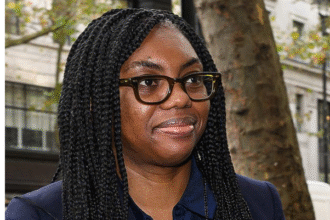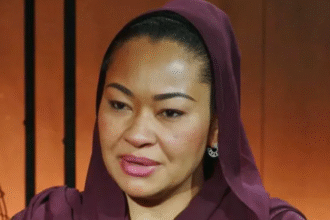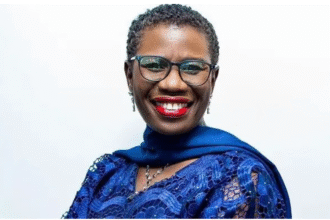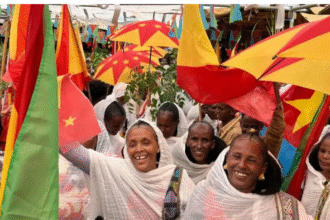By Daniel Niyongabo
Mogadishu, Somalia – Construction is booming in Mogadishu, and as the city rises from the ashes of its war-torn past, it’s providing unprecedented opportunities for women in the traditionally male-dominated field of engineering. Young engineers like Fathi Mohamed Abdi and Saadia Ahmed Omar are at the forefront of this transformation, spearheading the construction of modern apartments and infrastructure.
Abdi and Omar recently oversaw the construction of a 10-story apartment complex in the Hodan District. As chief operating officer for Arkan Engineering Services, Abdi said when she started her career, she faced a lot of doubt. “People doubted me,” says Abdi. “They would ask, ‘How can we trust a house built by a woman? How can I trust my money and property with a young female engineer?'”
The two women, both 24, have been practicing engineers for the past five years, contributing to the rebuilding efforts of a city ravaged by decades of civil war. “Mogadishu needs us,” says Omar. “When I was young, this city was in chaos. Now, we are part of its reconstruction.”
The city’s skyline is now dotted with cranes and scaffolding, a testament to the rapid pace of construction. According to the mayor’s office, over 6,000 buildings have been constructed in the last five years alone, marking a significant change in Mogadishu’s landscape. Improved security, coupled with investments from the Somali diaspora, is fueling this construction boom. Remittances account for a significant portion of the country’s GDP, providing crucial capital for development projects.
Ibrahim Abdi Heyle, chairman of the Somali Engineers Association, acknowledges the shifts in Somalia’s traditionally male-dominated society. “The workload has significantly increased. As a result, the association actively encourages greater participation from women, emphasizing that they are not only welcomed but also vital in filling critical gaps in the workforce.”
Despite these advancements, challenges remain. Women account for only 5% of engineers in Somalia, and mentorship opportunities are scarce. “When I applied for internships, most companies rejected me,” Omar recalls. “They didn’t think a woman could handle the physical demands of engineering. I searched for three months before someone finally gave me a chance.”
Veteran architect Siidow Cabdulle Boolaay expresses concerns about the rapid development. According to Boolaay, the sand used in Mogadishu’s buildings is salty, which undermines its effectiveness. “These tall buildings are not designed to withstand fire or heavy rain, and safety for the tenants is not considered during development. Many of these buildings lack fire extinguishers and proper electrical installations,” he says.
Additionally, the rapid urbanization poses infrastructure challenges, including the lack of a proper sewage system and unregulated borehole drilling, which risks depleting groundwater reserves. Christophe Hodder, a UN climate security and environmental adviser, warns that the unchecked construction boom could lead to long-term environmental consequences.
Despite these challenges, both Abdi and Omar remain optimistic about Mogadishu’s future. “When I walk through the streets and see buildings I helped construct, I feel proud,” says Omar. “We are not just building structures; we are building hope.”
Abdi adds, “We are proving that women can not only design buildings but also lead projects and shape the city.”
